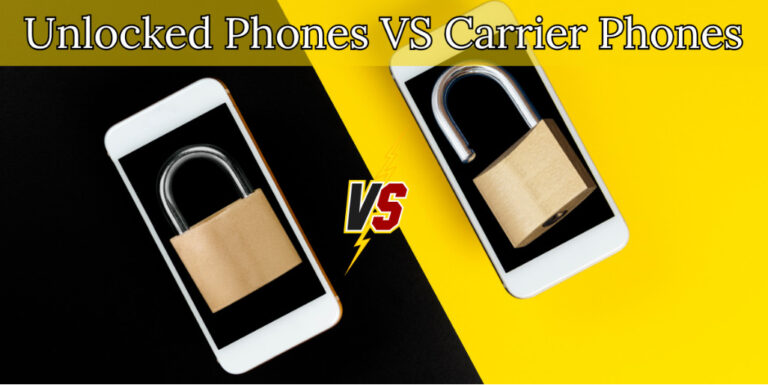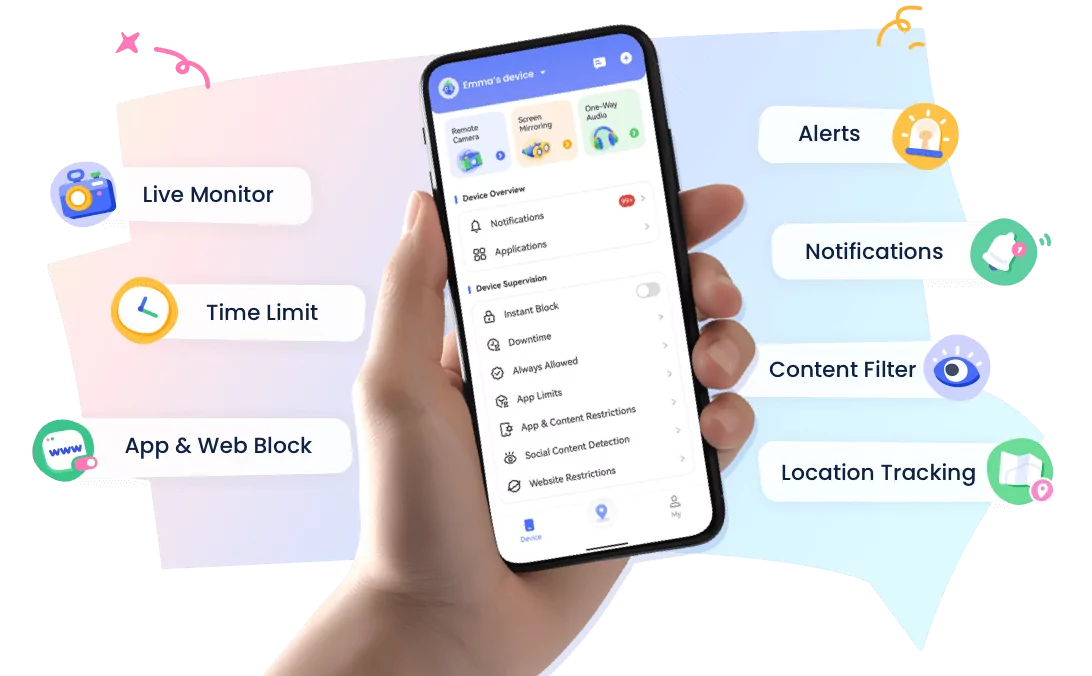Unlocked Phones vs Carrier Phones: Which One Should You Buy?
Getting a new phone now is not simply a decision of what model you want. In fact, it is a decision of how you want to own and use that phone. A question that many buyers are asking is: Get an unlocked phone or a carrier phone? If you get confused between these two categories, you are not the only one. In this guide, we will discuss unlocked phones vs carrier phones, how they work, and help you determine which one of them is right for you based on your lifestyle and budget.

Part 1: What Are Unlocked Phones?
Unlocked phones are smartphones that are not attached to a carrier, which means they are unlocked to operate on any carrier that supports the network technology (GSM or CDMA). You just need a compatible SIM card.
These phones are generally purchased from manufacturers (such as Apple, Samsung, or Google) directly or from online retailers such as Amazon. They do not come with any long-term contract obligation. So, you can switch between carriers whenever you want.
Key Features of Unlocked Phones
- No carrier restrictions.
- Work internationally with local SIM cards
- Often receive faster software updates
- Come without pre-installed carrier apps (no bloatware)
- You pay full price upfront (no monthly payment plan)
Part 2: What Are Carrier Phones?
Carrier phones come from mobile networks like Verizon, AT&T, T-Mobile, and similar companies. When you buy one, it’s usually “locked” to that provider. This means you can only use it with their service right away. If you want to switch to a different carrier, you usually have to unlock the phone first. Phone companies often offer these devices on payment plans. You can get a lower upfront cost if you agree to a long-term contract.
Key Features of Carrier Phones
- Usually locked to one network
- Sold with payment plans or discounts
- Include carrier-specific apps and features
- Often bundled with deals, promotions, or insurance
- May have delayed software updates due to carrier testing
Get Rid Of the Phone Temptation?
Try using AirDroid 's focus mode! This focus mode can only be turned off after the set time or by a parent, ensuring you stay on track until the task is done.
Part 3: Unlocked Phones vs Carrier Phones
Here’s a comparison table that highlights what is the difference between an unlocked phone and a carrier phone:
| Feature | Unlocked Phones | Carrier Phones |
|---|---|---|
| Network Compatibility | Works with most GSM and CDMA carriers | Locked to one specific carrier |
| Price | Full price upfront | Monthly payments or discounted with a contract |
| Flexibility | Can switch carriers anytime | Requires unlocking or contract end |
| International Use | Easy to use with foreign SIM cards | Often limited or blocked for use abroad |
| Software Updates | Received directly from the manufacturer | May be delayed due to carrier testing |
| Pre-installed Apps | Minimal bloatware | Includes carrier apps and features |
| Group chat | Can’t invite them to groups. | Can add them to groups, but they will receive a notification that you are in this group. |
| Resale Value | Generally higher | Slightly lower due to limitations |
Pros and Cons of Unlocked Phones
Pros
- You can choose or switch any carrier whenever you like.
- Perfect for travelers or anyone who moves a lot.
- Carriers can’t limit you to certain plans.
- It’s easy to sell or trade.
Cons
- High upfront cost
- May not support all features on certain networks
- No carrier customer support for device issues
- Lower upfront cost because of payment plans.
- Get exclusive carrier deals and trade-ins.
- Easy support since your carrier handles everything.
- Locked to one network
- May contain bloatware
- Software updates may arrive later
- You travel abroad and want the freedom to use local SIM cards.
- You like switching carriers when you find a better deal or better service.
- You want the latest software updates from the maker without the wait.
- You prefer no hidden fees or long service contracts.
- You’d rather break the cost into monthly instalments instead of a big single payment.
- You like bundling the phone with your plan for a smoother setup.
- You plan to stick with your carrier for at least the next couple of years.
- You appreciate in-store help and special trade-in bonuses.
Pros and Cons of Carrier Phones
Pros
Cons
Part 4: Which Phone Should You Choose?
Whether to buy an unlocked phone or a carrier phone it depends on your unique needs, budget, and phone use.
Choose an Unlocked Phone if:
If you travel frequently between the U.S. and Europe. You can buy an unlocked iPhone so you can slide in a local SIM card in every country, avoid sky-high roaming fees, and skip the headache of being glued to a single carrier’s network.
Choose a Carrier Phone if:
If you don’t have enough budget, you can pick a carrier plan that lets you pay monthly and gives you a solid trade-in bonus for your old phone.
Conclusion
There is no yes or no answer to unlocked phones vs. carrier phones. Carrier phones let you pay for it in small bites and get support quickly, while unlocked models give you the liberty to switch carriers.
Ultimately, it really depends on how you intend to use the phone and how much independence or assistance you require.
As you narrow down your choices, ask yourself about your daily needs, the price you are willing to pay, and whether you travel frequently or switch carriers frequently. Knowing the pros and cons of each will help you gain confidence in choosing the right one for you!
FAQs















Leave a Reply.